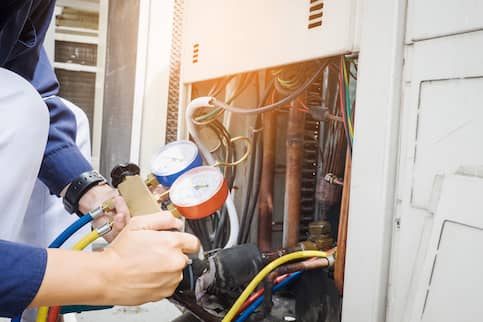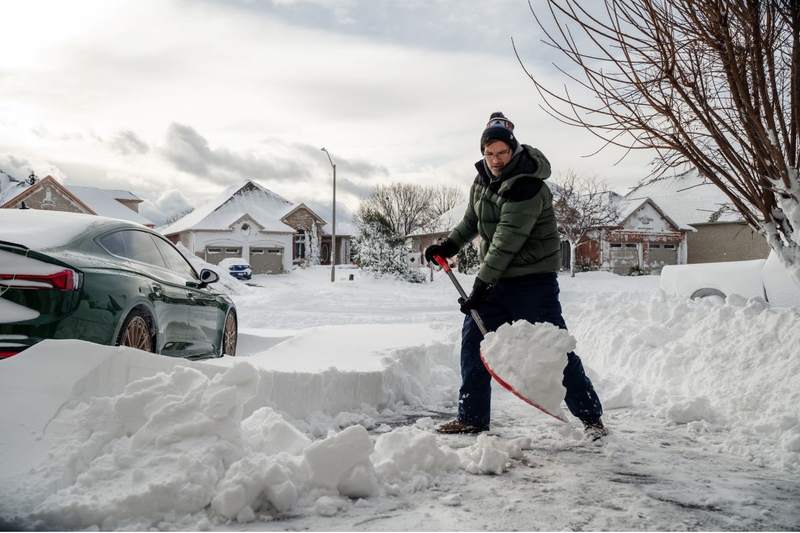In the last year, working from home has grown in popularity. COVID-19 stay-at-home mandates take much of the credit for this, but many companies have started to implement either a hybrid or fully remote work system.
It’s estimated that 25 – 30% of the workforce will be working remotely several days a week by the end of 2021.1
If you’re someone who’s currently working remotely, whether it’s partial or full time, you may be wondering about working from home insurance, especially if you’re new to the telecommuting world.
Here’s what you should know about homeowners insurance and what you may receive coverage for, depending on your work situation.
Key Takeaways:
- Independent contractors receive no coverage from homeowners insurance, whereas full-time remote employees may receive limited coverage.
- Independent contractors should add business endorsements to their homeowners insurance policy for business coverage.
- Renters insurance does not cover work-related damages or liabilities.
Table Of Contents:
Does Working From Home Affect My Home Insurance?
Does Home Insurance Cover Working From Home?
Does Homeowners Insurance Cover Laptop Damage?
Full-Time Employees Versus Independent Contractors
Does Renters Insurance Cover Working From Home?
How To Fill Work-From-Home Insurance Gaps
Types Of Endorsements For Working From Home
Does Working From Home Affect My Home Insurance?
Working from home can affect your home insurance, but it depends on the extent of your remote employment. If you run an independent company, your basic homeowners insurance policy does not protect anything related to your business. You must add endorsements to your current insurance policy for additional coverage.
However, if you’re a full-time remote employee, you may be able to receive some coverage on business-related damages and losses. Keep in mind that there are limitations to this, so it’s best to discuss with your insurance provider the extent of your homeowners insurance policy, as well as discussing work-from-home policies with your company management team or supervisor.
Questions you should ask yourself to determine the extent of coverage:
- Were you hired as a remote employee for your company?
- Do you have work equipment that you use daily?
- Do you work with highly sensitive data in your remote position?
- Do you have homeowners insurance or renters insurance?
See What You Qualify For
Buy A Home
Discover mortgage options that fit your unique financial needs.

Refinance
Refinance your mortgage to have more money for what matters.
Tap Into Equity
Use your home’s equity and unlock cash to achieve your goals.
Does Homeowners Insurance Cover Working From Home?
To answer simply, home insurance is primarily used to protect your personal and structural property. It’s not necessarily designed to provide sufficient coverage if you work from home.2
However, if you use any business-owned devices or equipment in your remote role, homeowners insurance has strict limitations in covering the damage or loss.3
The most standard type of homeowners policy is known as a Special Form or HO-3. This type of policy only provides $2,500 for business devices and equipment coverage if you’re working inside of your home. You may receive an additional $500 in coverage if you work remotely at a nearby location, like a local cafe or shared workspace.
Does Homeowners Insurance Cover Laptop Damage?
Standard home insurance policies do offer some protection for business-owned laptops, but there are coverage limitations. If the damage or loss happens in your home, you may be compensated for up to $2,500, while if it happens away from your home, you will be paid only $250.3
If the company-owned laptop that you use for remote work gets stolen, your employer will cover the loss with their commercial property insurance. If it’s your personal laptop that’s stolen, it should be covered by your homeowners insurance policy.3
Full-Time Employees Versus Independent Contractors
It’s important to define your work status because there’s a legal difference between an independent contractor and a full-time employee. Both types of employment receive varying amounts of coverage, but here are the key differences:
- Full-time employee: Full-time remote employees are entitled to employer-provided equipment and tools to complete their work.4 As a full-time employee, you shouldn’t be using any personal items to complete your work remotely. You should have coverage for any business-related injuries on your property and business property.3
- Independent contractor: Independent contractors are business owners responsible for covering their liabilities, paying their taxes and purchasing their insurance.4
Does Renters Insurance Cover Working From Home?
Although renters insurance is comparable to homeowners insurance from a broad standpoint, renters insurance only covers your personal property and doesn’t include structural properties.
Renters insurance doesn’t cover any business-related claims, either. It doesn’t work the same way as home insurance works for remote workers. If you work remotely and have renters insurance, look into your policy details and discuss options with your company’s management to receive coverage for business equipment.
How To Fill Work-From-Home Insurance Gaps
If you’re working a full-time remote position, it’s recommended that you discuss the insurance coverage and company liability policies with your manager or supervisor. These coverage policies may also be included in your employment contract.
Some items that may receive extended coverage are:
- Home office equipment: This includes a laptop, monitors, standing desks and any other business equipment you use regularly to perform your job.
- Injury workers’ compensation: If you get injured while performing any tasks related to your work during your work hours, you may receive compensation.
- Personal property: In certain circumstances, you may receive limited coverage for any personal property damages if they occurred while you were completing work-related obligations.
Types Of Endorsements For Working From Home
If you’re an independent contractor who works from a home office, you should be able to add endorsements to your current homeowners insurance policy to not only protect yourself, but protect your work equipment and devices as well. Here are some of the types of endorsements you may need:
- Home business insurance coverage: As an independent contractor, you’ll want to secure home business insurance along with your homeowners insurance to cover any possible damages and losses to your office devices and equipment.3 It’s advisable to invest in a home business insurance plan to cover your business property and work liabilities.
- Business property endorsement: If you’re an independent contractor and own costly work equipment, consider adding a business property endorsement to your homeowners insurance policy.5 Business property endorsements can increase coverage limits on work and business equipment. This means you may receive insurance coverage for up to $5,000 rather than the standard $2,500.
If you’re working remotely and plan to rent or buy a home, talk to your insurance provider about what homeowners policy is best for you. While we don’t offer business insurance, we’re happy to provide you with this information to keep you as informed as possible.
Sources:
2Brad Cummins at Insurance Geek, direct communication
3Westwood Insurance, direct communication
4Baruch Silvermann at The Smart Investor, direct communication
5Pat Howard at Policygenius, direct communication
Find A Mortgage Today and Lock In Your Rate!
Get matched with a lender that will work for your financial situation.

Victoria Araj
Victoria Araj is a Staff Writer for Rocket Companies who has held roles in mortgage banking, public relations and more in her 15-plus years of experience. She has a bachelor’s degree in journalism with an emphasis in political science from Michigan State University, and a master’s degree in public administration from the University of Michigan.












